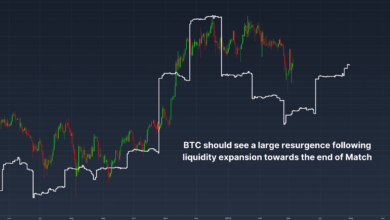
World Fintech Regulations Overview
Access to financial services and safety are only two areas where fintech—financial technology—has improved our lives. However, new technologies like blockchain and NFTs have improved the fintech scene and changed it for the better. For example, decentralized finance (DeFi) allows people more freedom in how and where they borrow and lend money rather than being tied to one bank or other central bank. According to market research, the worldwide fintech sector has the potential to surpass $37 billion by 2026. As authorities focus on emerging fintech companies and their solutions, fintech rules have recently gained momentum. Curiously, many nations’ financial technology sectors have long operated unchecked by regulators. Nevertheless, any organization involved in economic activity must adhere to regulations.
There was a mismatch between the needs of fintech firms and the first set of rules drafted for the sector. Remember that the fintech business regulations are more intricate than those governing more conventional banks. Fintech companies, for instance, are likely to have activities in more than one jurisdiction, which means they’ll have to comply with rules that vary from one country or region to another. Here, you may get a comprehensive overview of the regulations and laws governing fintech in various parts of the globe.
What are Fintech Regulations?

The definition of fintech regulations would be the primary emphasis of the initial overview of fintech regulation. If you’re looking for a set of regulations and guidelines to govern the operations of fintech companies, you’ve come to the right place. Those rules would apply to any business that provides financial goods and services through technology. Fintech has been expanding quickly, and as a result, many startups are challenging established business models and shaking up the conventional financial sector.
Simultaneously, a survey of the fintech sector would reveal the presence of unique dangers and obstacles. Fintech companies face some limits regarding consumer safety, data security, and financial stability. So, authorities have been developing new regulatory frameworks to safeguard consumers, keep the economy stable, and promote innovation.
The ever-changing and intricate nature of the World Fintech regulatory environment is another critical component of fintech regulation definitions. There are significant variations in the approaches various countries take regarding fintech rules. While some nations build legislation in response to new needs, others take a more hands-off approach based on what’s already in place.
In addition, several nations have established regulatory sandboxes that allow fintech firms to try out innovative ideas and products without worrying about breaking any rules. New rules covering particular areas of fintech, such as digital currencies or online lending, are also a part of the strategy for financial technology regulation in certain nations.
Importance of Regulation for Fintech Companies
Regarding financial technology, regulators should prioritize the safety of both enterprises and their customers. As new forms of economic crime emerge in fintech, regulations are crucial for protecting the global economy. For example, KYC standards are constantly being revised to combat illegal and fraudulent techniques to combat illegal and fraudulent techniques. When asked, “What is the overview of the fintech sector?” new security risks would also be brought to light.
Conversely, for the sake of both companies and customers, financial technology regulation tackles some severe problems. More and more, authorities are checking businesses’ data for breaches in privacy and security. Why? The ability to collect and handle massive amounts of financial and personal data from customers is crucial for fintech companies. Rules for financial technology are primarily concerned with security and compliance.
The following are a few of the strongest arguments in favor of implementing regulations for financial technology in different parts of the world.
Regulations are essential for the fintech industry to get down and talk shop. That way, fintech businesses would have a level playing field because they would all have to adhere to the same standards.
Adherence to rules may facilitate the scaling of fintech enterprises. For example, fintech companies can leverage compliance when introducing new goods and solutions. In addition, when fintech companies follow the rules, they can quickly obtain a full banking license or grow into other countries.
The importance and overview of fintech regulation also impact the assurance of trust and credibility. Is legally obligatedinancial services have a legal obligation to follow specific rules to earn their client’s trust.
Fintech Regulations in Different Parts of the World
Compliance with the many rules and regulations that affect the industry is essential to helping financial technology companies grow. Various nations around the world around the world have different approaches and frameworks for fintech regulation. Anyone in charge of a business, whether new or old, needs an accurate knowledge of the regulatory environment around fintech worldwide. We will take a look at how fintech legislation varies around the world.
Regulatory Framework for Fintech in the United States
In the US, numerous federal and state agencies work together to follow a complicated regulatory framework for fintech. Here are a few of the most prominent US-based models for fintech governance:
-
Office of the Comptroller of the Currency (OCC)
When considering US fintech regulation as a whole, the OCC is an important actor. It is presently in charge of overseeing national banks and federal savings associations. The announcement by the OCC to allow national banks to offer digital asset custody services was a massive deal for the financial IT industry.
-
Security and Exchange Commission (SEC)
In 2017, the SEC published a study that placed Initial Coin Offerings (ICOs) within the purview of federal securities laws, making it clear that the SEC was a critical regulatory authority for fintech in the United States. Consequently, the ICO market was subject to more regulations and scrutiny.
-
Consumer Financial Protection Bureau (CFPB)
In 2017, the SEC published a study that placed Initial Coin Offerings (ICOs) within the purview of federal securities laws, making it clear that the SEC was a critical regulatory authority for fintech in the United States. Consequently, the ICO market was subject to more regulations and scrutiny.
-
State-Level Regulations
The United States addresses regulatory issues in fintech through federal and state-level rules. Nevertheless, fintech companies may encounter challenges due to rule variations among US states. For instan, foreral governments provide regulatory sandboxes where fintech companies can test their novel solutions to alleviate the overwhelming burden of laws to alleviate thmitigatelming burden of laws. However, several states have enacted several states have enacted new regulations and legislation tailored specifically to financial technology companies.
Regulatory Frameworks for Fintech in Asia
When it comes to financial technology, Asia is a crucial region. There are a plethora of regionally specific fintech regulations in Asia. Looking at the Asian fintech industry, we can see that China and India are spearheading its expansion. Several nations have adopted a more welcoming stance to encourage innovation in financial technology. On the contrary, certain Asian countries have strict regulations regarding fintech. The following is a synopsis of the financial technology regulatory frameworks in several Asian nations.
-
China
The fintech industry in China has grown at an erratic rate despite the country’s prominent position in the worldwide market. For instance, large companies like Alipay and WeChat primarily drive the mobile payments industry primarily drive the mobile payments industry. Concurrently, the Chinese government’s recent crackdown on cryptocurrency and fintech must be acknowledged. Fintech companies in China are now required to obtain licenses to engage in certain operations due to new, stringent restrictions enacted by the government regarding online lending.
-
Japan
Thanks to its highly regulated banking industry, Japan is another prominent Asian market for fintech. When looking at fintech legislation worldwide, it’s essential to highlight the Financial Services Agency’s (FSA) involvement in regulating the industry. It is recommended that fintech companies seek licenses from the FSA to operate in Japan. Meanwhile, the FSA provides new regulations and regulatory sandboxes for digital currencies, which promotes innovation in the fintech industry.
-
South Korea
Among the mature financial industries in Asia, South Korea stands out in the fintech business. To encourage innovation in the financial technology sector, South Korea has created a regulatory climate that is both flexible and supportive of regulatory sandboxes. Concurrently, businesses face a variety of fintech regulations, most of which pertain to data protection, consumer safety, and anti-money laundering.
-
India
Fintech in India has also been booming, with companies like Paytm and PhonePe controlling most mobile payment transactions. However, there are many moving parts in India’s fintech regulatory environment, including laws for data protection, electronic know-your-customer, and payment processing.
-
Singapore
Singapore has gained a significant reputation for implementing fintech legislation to entice new businesses, making it one of the most renowned hubs for World Fintech in Asia. Regarding financial technology, Singapore’s regulator is the Monetary Authority of Singapore. It has laid out a comprehensive regulatory framework to facilitate the operations of online banks. Regarding capitalization and risk management, the regulatory structure is rigorous.
Regulatory Frameworks for Fintech in the European Union
Fintech regulatory frameworks have also been established in the European Union, another prominent global geographical region. For financial technology businesses operating within its member states, the has crafted a variety of laws. The main points of the EU’s fintech regulatory framework are outlined here.
-
General Data Protection Regulation (GDPR)
To keep customer information safe, the General Data Protection Regulation (GDPR) of 2018 is paramount. The main objective is to create consistent guidelines for the EU to follow when dealing with customers’ data. According to regulatory frameworks like GDPR, fintech companies can improve the safety of sensitive data collection and processing. Under GDPR, customers must provide their consent before any personal information is collected, and they will also have more options for viewing and erasing their data.
-
Anti-money Laundering Directive (AMLD)
Another critical improvement to the EU’s legislative framework for fintech is PSD2, or the Payment Services Directive 2. Its purpose is to control financial transactions within the EU and was implemented in 2018. According to PSD2, financial institutions must make their payment infrastructure available to fintech companies. Account details and payment initiation services are likewise subject to the rules and regulations imposed by PSD2.
-
E-Money Directive
The European Union’s E-Money Directive is an intriguing piece of global fintech legislation. The main topic is regulating electronic money issuance in the European Union. The rule requires financial technology firms to get permission from relevant government agencies before issuing electronic currency. However, companies that issue e-money should follow the regulations regarding consumer protection and capital requirements.
-
Payment Services Directive 2 (PSD2)
Fintech in the European Union now has a more robust legal framework thanks to the Payment Services Directive 2, or PSD2. Its purpose is to control financial transactions within the EU and was implemented in 2018. According to PSD2, financial institutions must make their payment infrastructure available to fintech companies. Account details and payment initiation services are likewise subject to the rules and regulations imposed by PSD2.
Conclusion
An overview of fintech laws worldwide gives one idea of how significant regulations are in this industry. Despite significant challenges, financial technology has emerged as a game-changer in the financial services industry. To safeguard consumers and build confidence in fintech firms, it is essential to understand the significance of regulations for fintech.
As the industry grows, New regulatory frameworks will be required for fintech companies. Fintech.com also follows all current rules and regulations in the fintech industry to make sure everything runs well. Find out what financial technology is and how it works so you can start making a difference in the world now.







